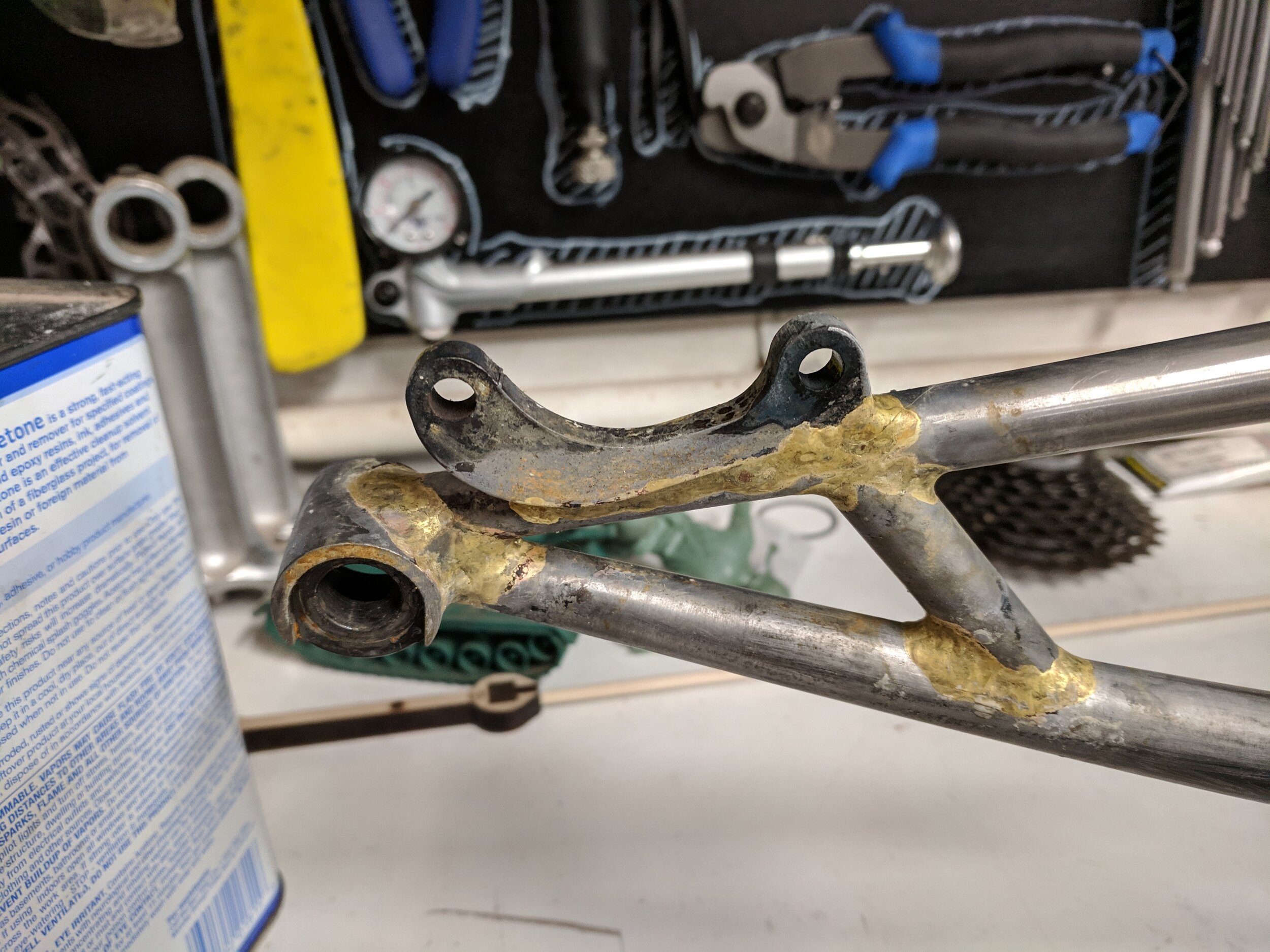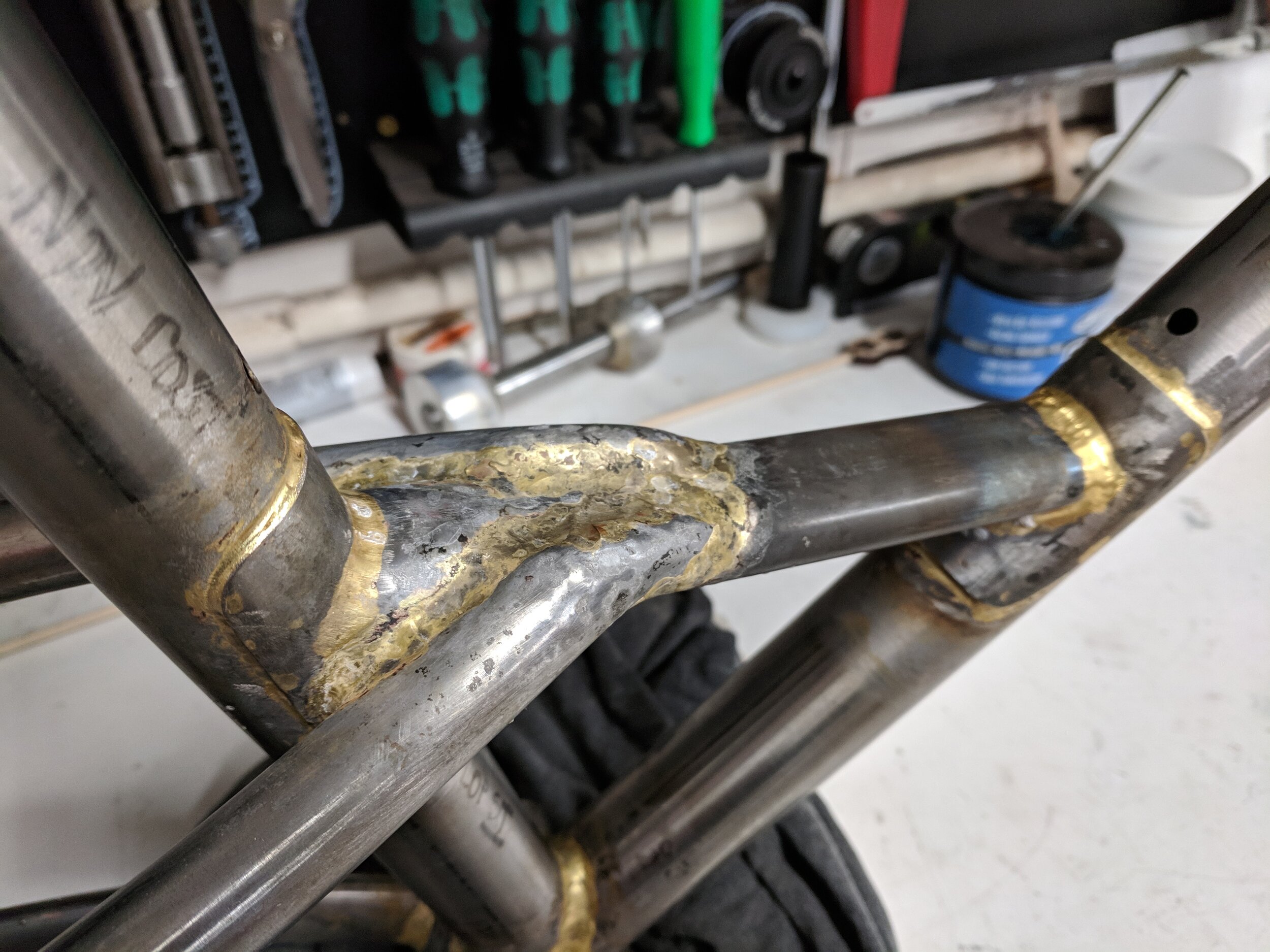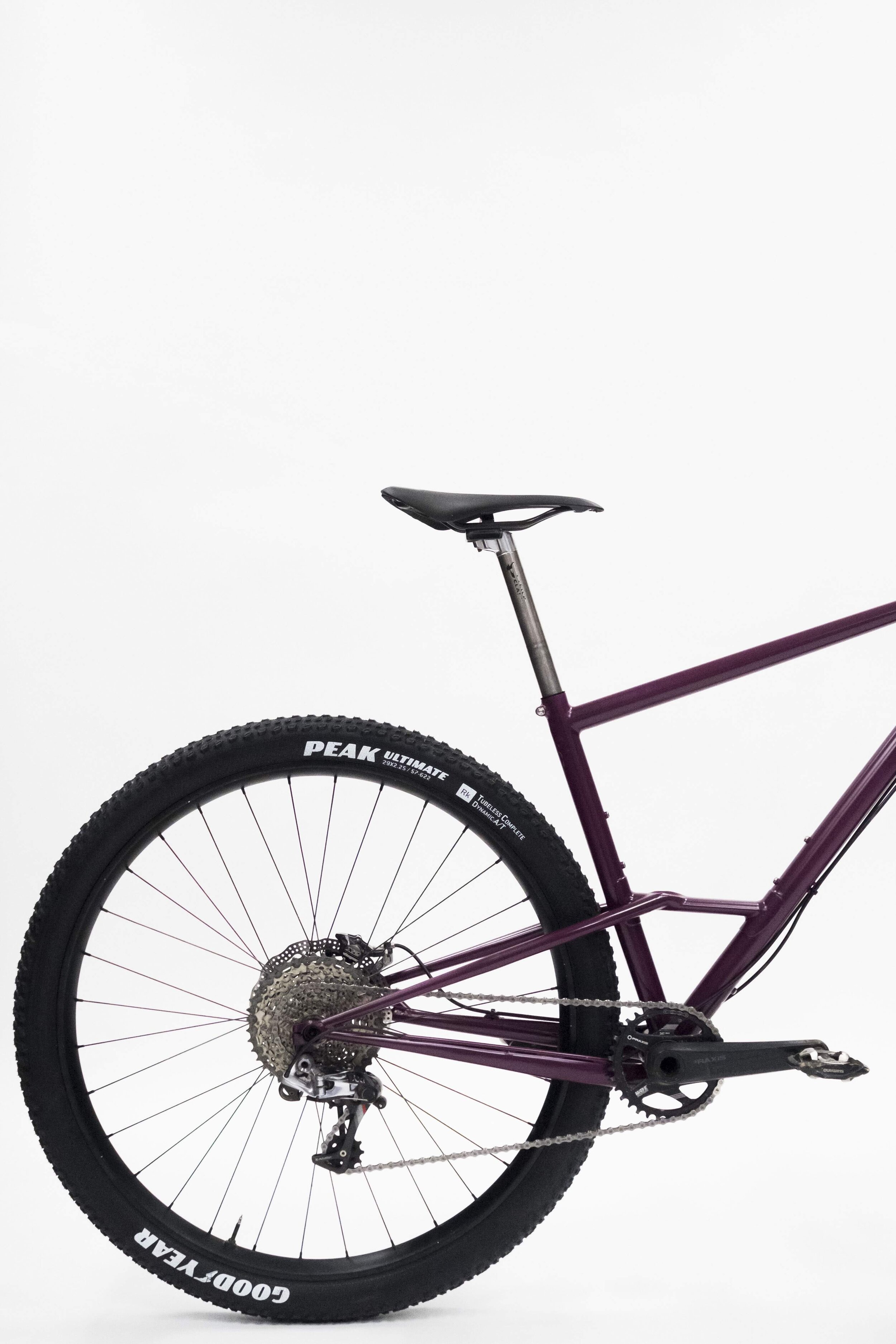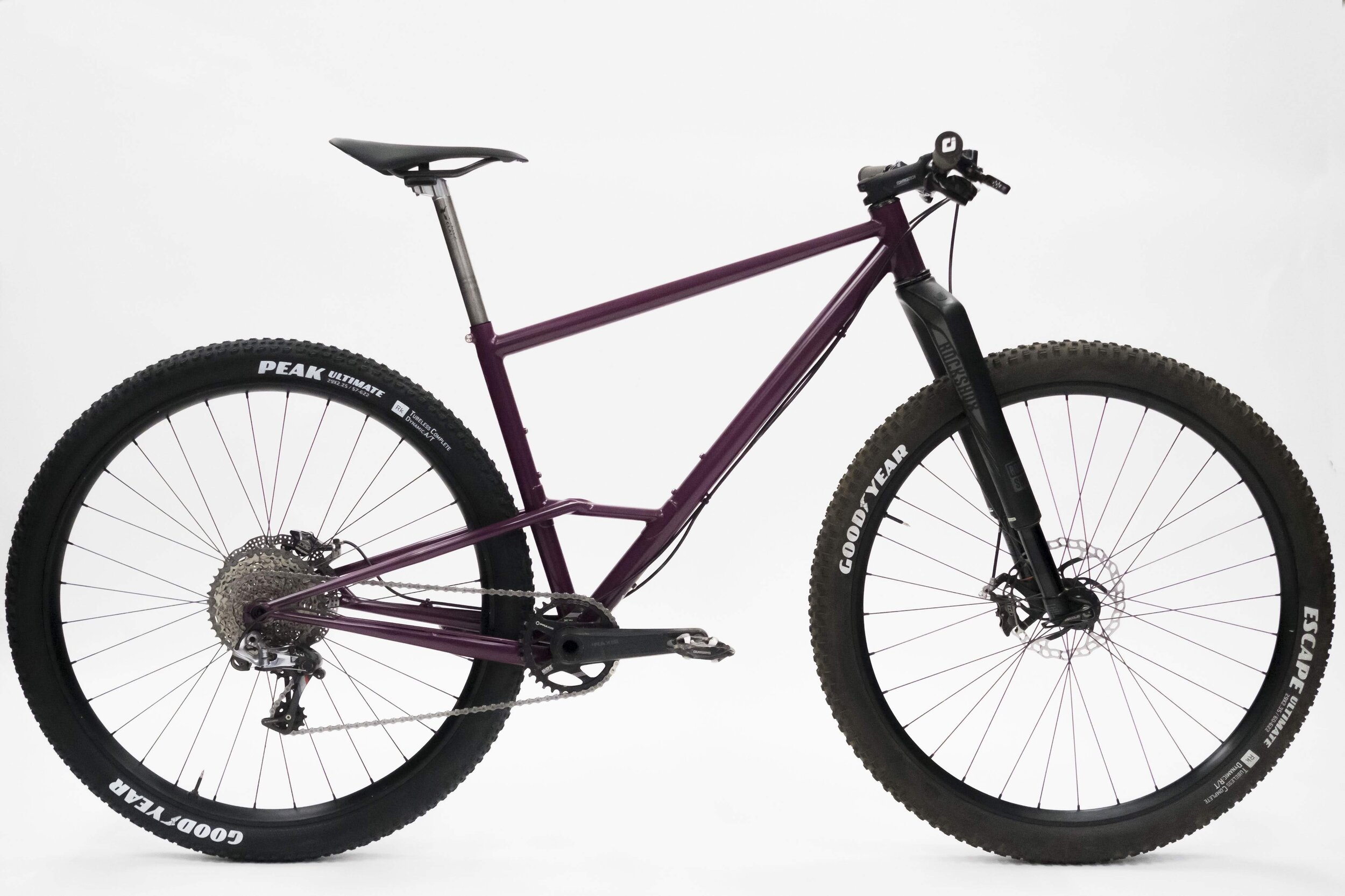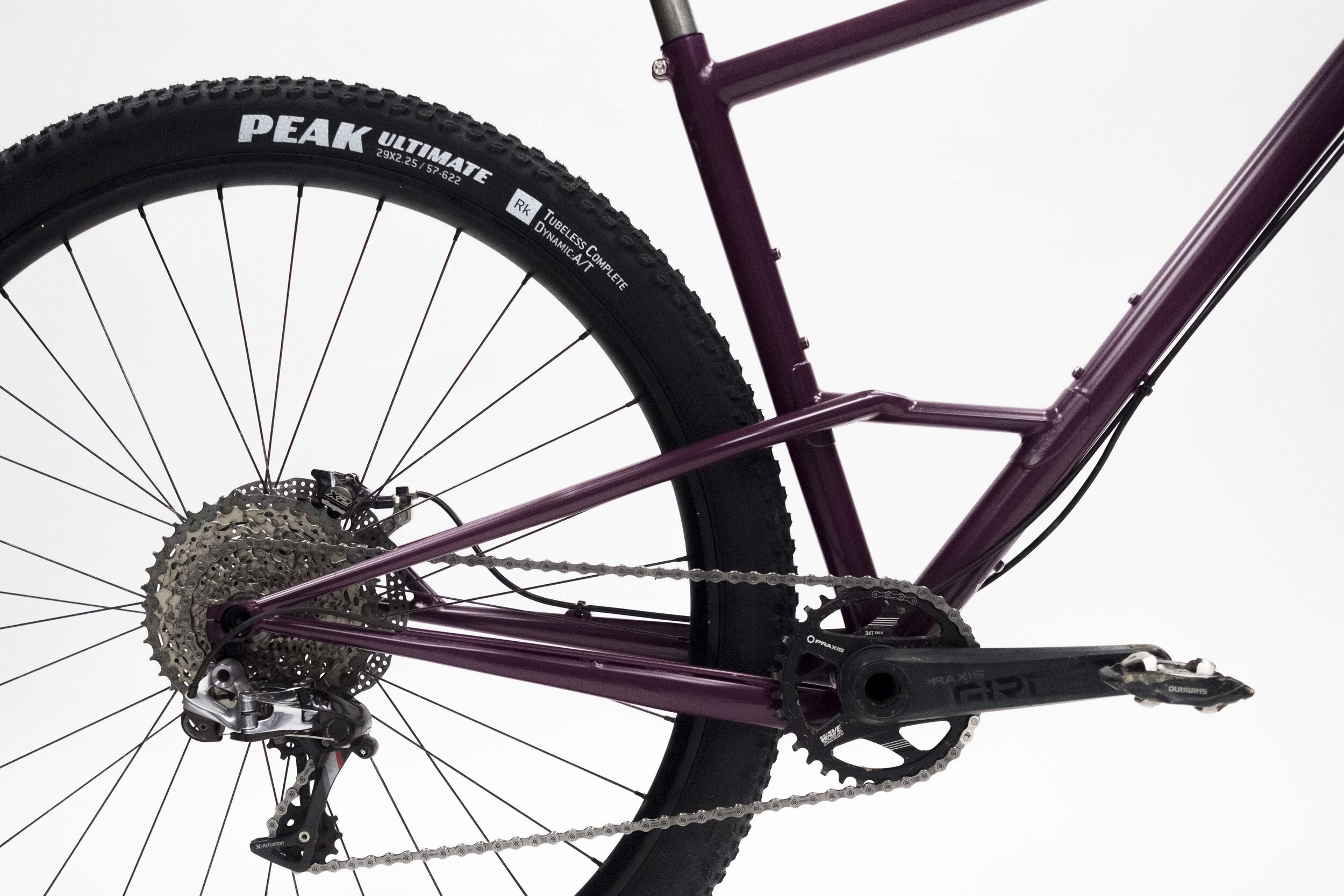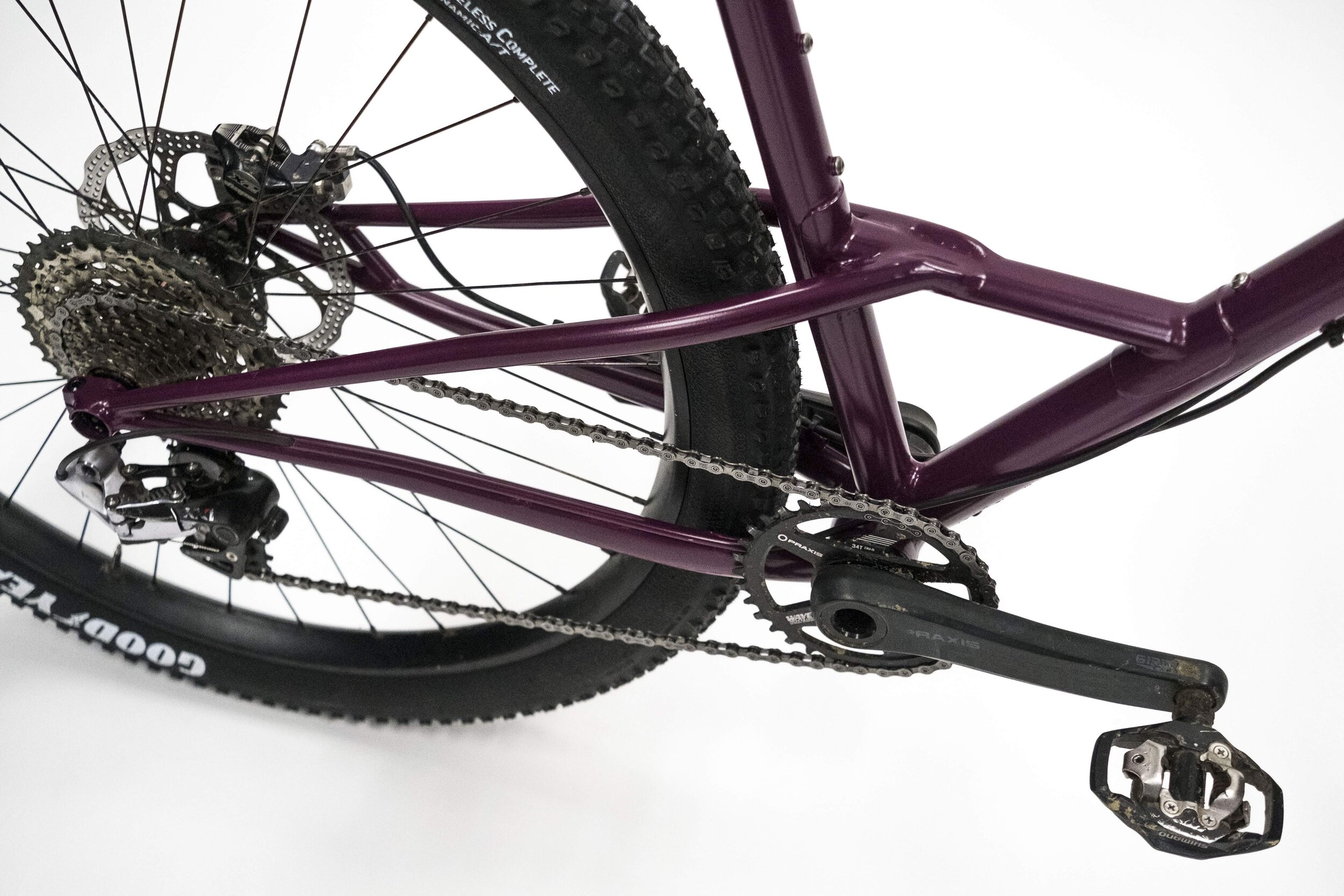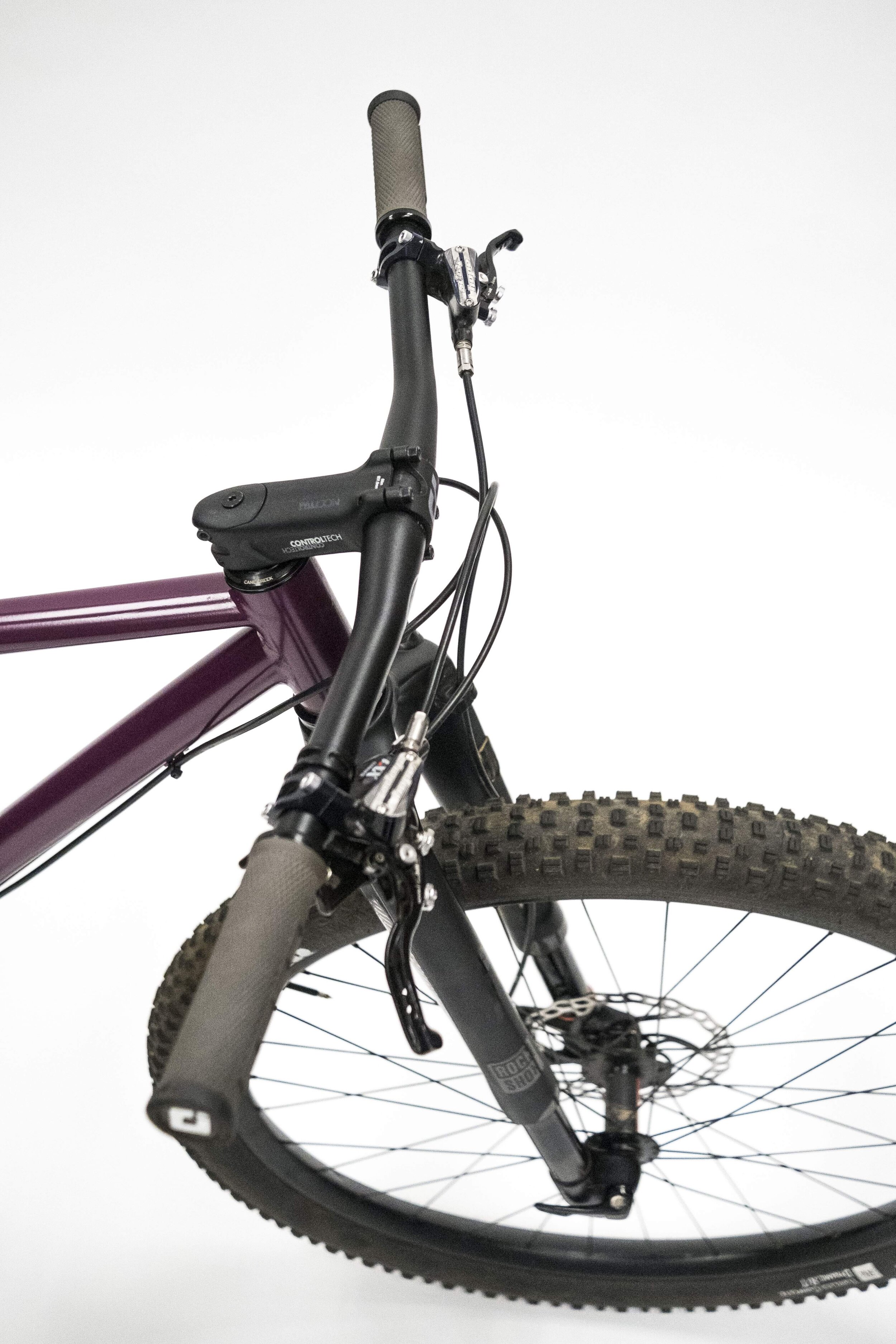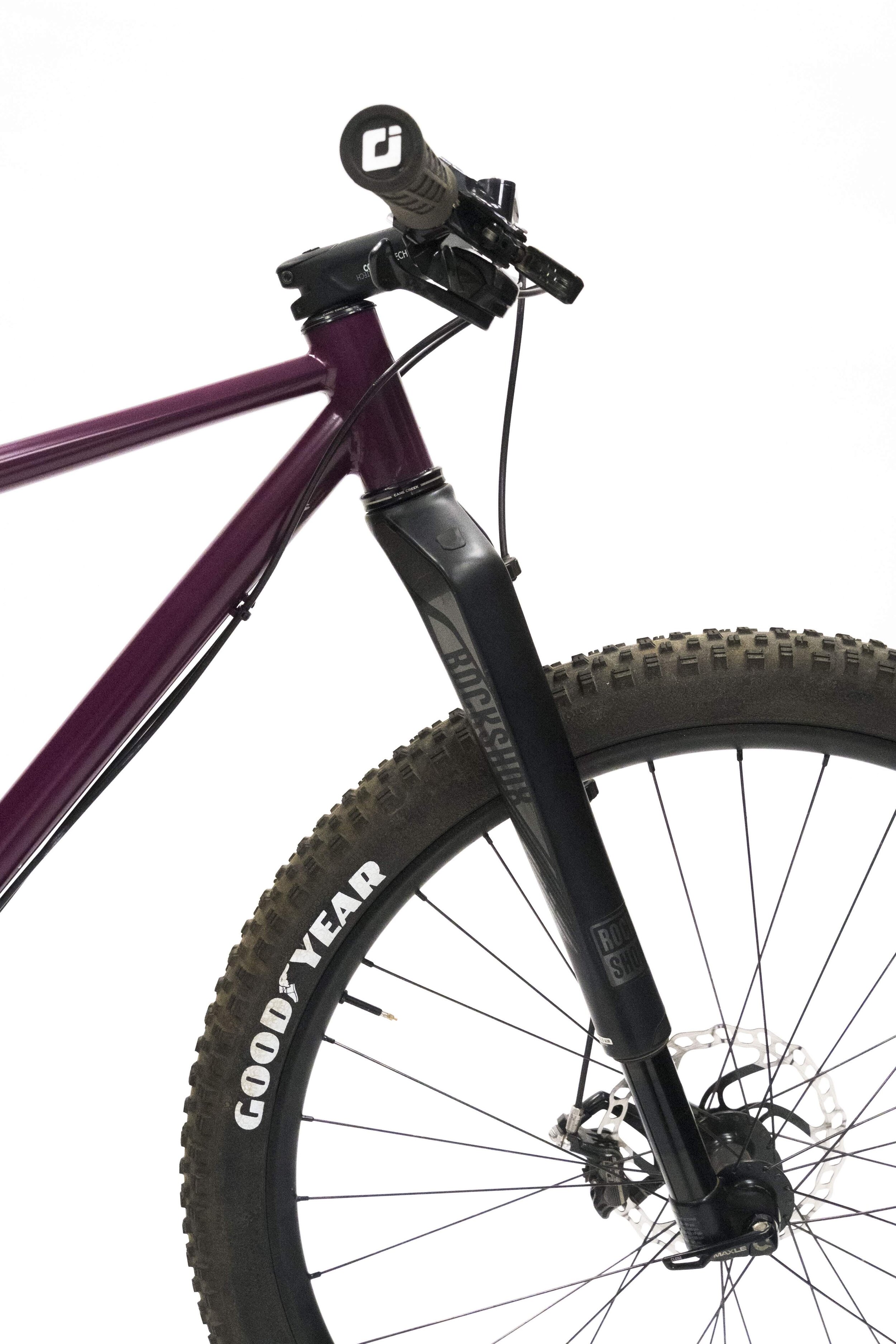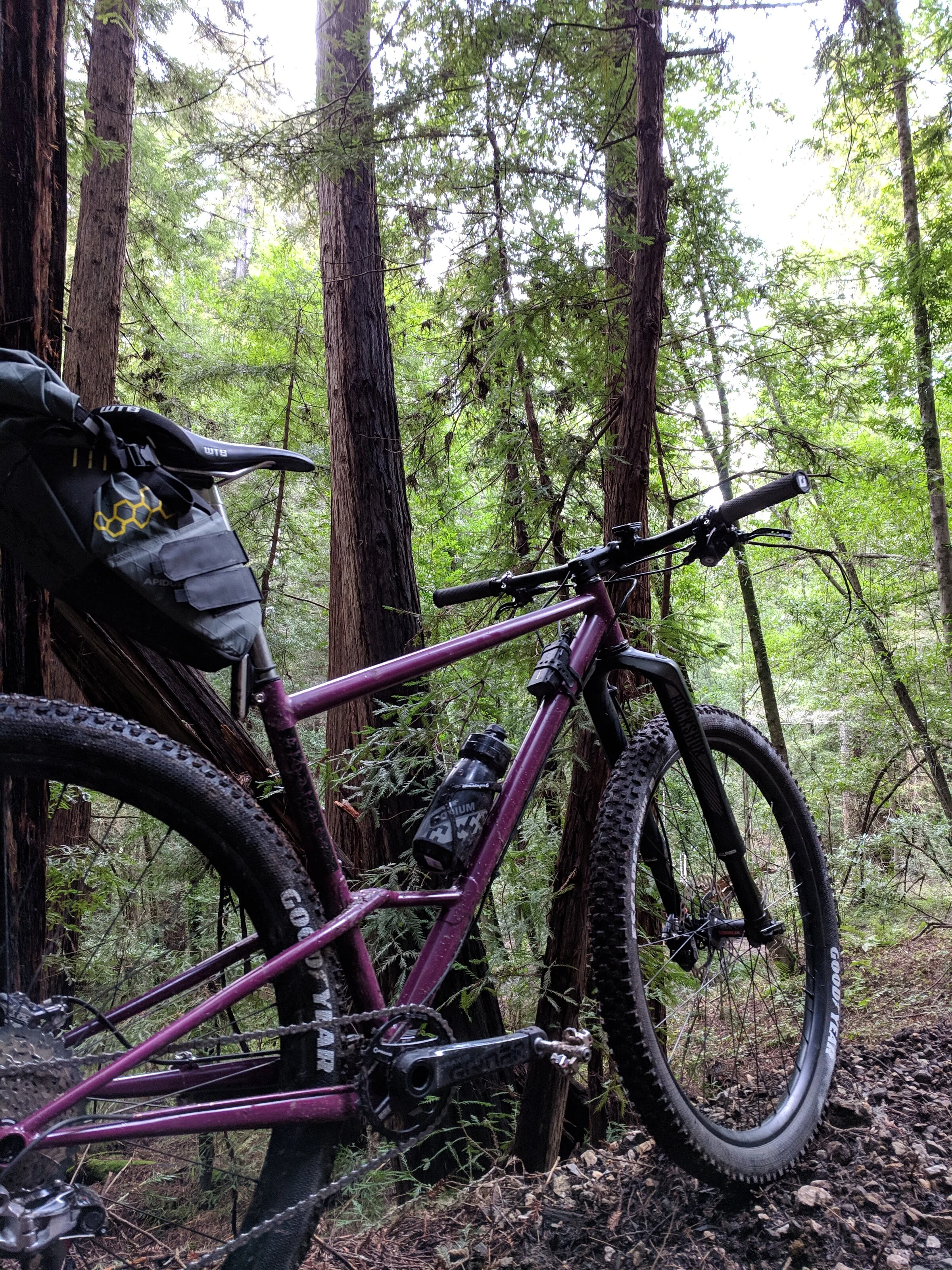HTP-01 MTB Frame Ride Review
Early CAD Render
With the second prototype of the gravel bike built and being tested, we felt it was time to pursue an extreme expression of the ideas that we embodied in that frame; dropped seat stays for comfort and aggressive geometry for stable handling off-road. Since both of those ideas are geared for a more off-road approach to riding, a hardtail frame design was chosen.
Frame Design Details
HTP-01 Final Geometry
Knowing your customer is paramount to building a successful frame. To that end, we asked who our target customer would be for this hardtail frame. It was decided that our customer would be someone who would want a frame capable of very aggressive XC riding and yet still something that would be fast enough to take out to your local race night and be able to win some races. For us, this meant clearance for 2.35 tires in the rear, design for a 100mm or 120mm fork, 1X drivetrain only, and geometry designed to seat the rider in the bike, not on top of that.
Given these priorities, we then proceeded to start with a slightly less aggressive race geometry with 440mm of reach and 608mm of stack height. From there we could start filling in the dots with a 67deg head angle, and 74 deg seat angle to keep the front end stable and the rider centered, and a chainstay length of 430mm to help balance out the front end. The final piece of the puzzle was fitted when we set the BB drop to be 65mm. This put it low enough to give the feeling of being in the bike without being so low as to start hitting the cranks on obstacles in the way.
Raw Frame on Workbench
To continue the development of our dropped stay configuration, we went much farther and dropped the seat stays to below the midpoint of the seat tube. This would allow a greater degree of vertical flex in the rear triangle as well as the seat tube while at the same time making it easier to brace the seat stay connection point between the seat and down tubes. This decision led to the distinctive frame design that you see above.
Ride Review
Pairing the newly built frame with components capable of matching the needs of the target customer, we ended up with a bike built up for aggressive XC riding with a 2.25 rear and 2.35 front tire, both being light tires from Goodyear but with a meaty enough profile to provide grip in more treacherous conditions. This was also paired with a 100mm travel, BRAIN enabled RS-1 fork, a choice intended to capitalize on the robust carbon upper construction of the RS-1 while still utilizing the efficient dynamics of the BRAIN cartridge to maintain an XC feel. All of this combined with an XX1 drivetrain, Praxis Carbon Girder cranks, and Hope brakes resulted in a reasonable complete build weight of 26lbs. All of this without having to resort to more "unobtanium" type parts.
Studio Shot of the Finished Bike
Our most significant concern with the new hardtail frame was whether or not the seat stay configuration (despite analysis through computer simulation) would be robust enough for how we planned to ride the bike. Thankfully, after nearly 300mi of riding we can say that not only is the seat stay configuration robust enough for aggressive trail riding, it also works in tandem with the 27.2mm to provide a much smoother riding experience. The feeling is akin to riding a plus bike where the impacts from trail obstacles are still there, but much more muted than they would otherwise be.
Out Riding
Another notable sensation that is perceived when riding the bike is how much more in the bike the rider feels compared to other XC bikes. While traditional XC bikes tend to ride with the feeling of being perched on top of a skinny rail and trying to merely negotiate corners, this bike approaches turns with relish, simply itching to be carved hard around off-cambers and thrown head-long into steep trails where most XC bikes would have no purpose being. This is something that we contribute to the slack front end and dropped BB wherein the front end geometry serves to slow down and stabilize the feeling at the handlebars and the lowered BB helps to speed it back up a bit by dropping the CG and allowing the bike to roll side-to-side just that much faster.
Final Impression
Overall we are very happy with how the bike handles and have since passed the bike along to our test team who will also be putting the bike through it's paces and providing feedback for the next version of the hardtail. There are a few things that we aren't as happy with in this first draft such as the tire clearance (needs to be increased) and the chainslap potential (chainstay protectors are currently being designed) but we are already working on ways to improve this design.




